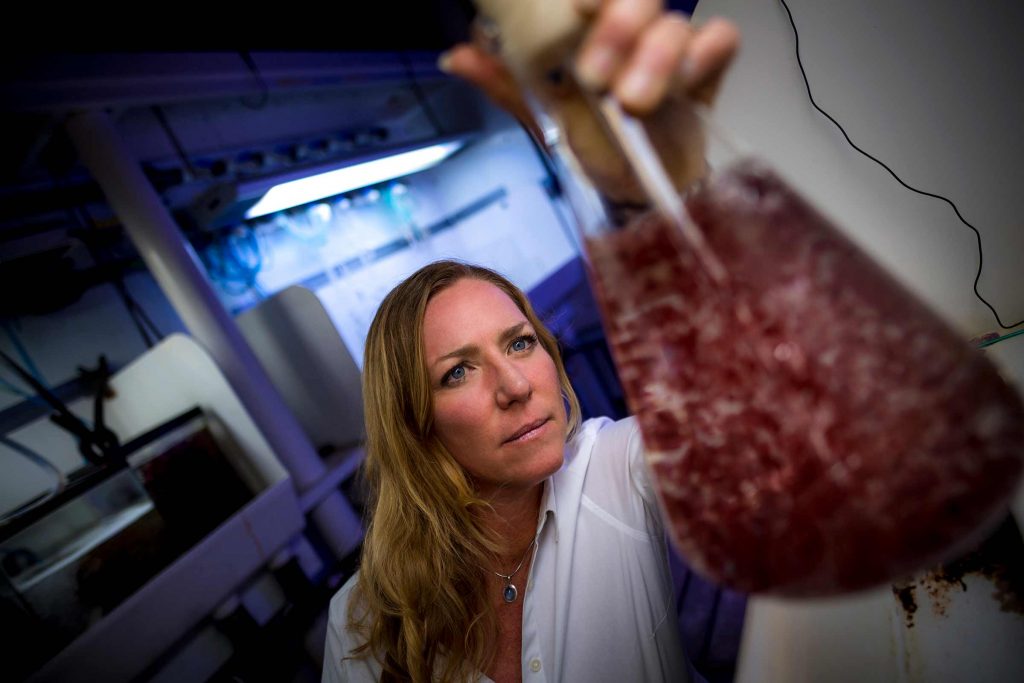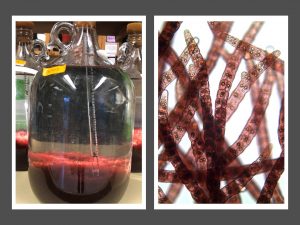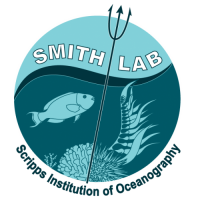Asparagopsis taxiformis Research:
Toward a better understanding of the seaweed known to reduce methane emissions in livestock
Principal Investigator: Dr. Jennifer E. Smith

Seaweeds have been used for centuries as a feed supplement for cattle farmers during time of food scarcity and even now, seaweed meal is sold as a source of vitamins and minerals for livestock, pets and humans alike. While there are no questions about the versatility and general health benefits of seaweeds, their use as a potential green house gas mitigating supplement has only recently been discovered. Seaweeds in general produce a large diversity of secondary metabolites with vast application to commercial interests. Specifically, relevant to greenhouse gas mitigation, the red algal genus Asparagopsis is known to produce a plethora of halogenated compounds some (e.g., bromoform) that have been shown to have antimethanogenic activity in rumen fermentation. To date a number of recent studies have shown that Asparagopsis can inhibit methanogenesis at very low levels both in vitro using enteric microbial consortia in the lab as well as in vivo with living cattle. The results have been consistent and compelling. In fact, the most recent studies at UC Davis have shown that feeding cattle a 1-2% dry mass supplement of Asparagopsis per day could reduce methane release by up to 70% without altering fermentation processes. These striking results could have significant implications for helping the cattle industry meet methane reduction regulations in the near future. However, more studies are needed to evaluate the long-term effects of Asparagopsis supplementation on a variety of parameters related to cow health and physiology, milk and meat quality and overall nutrition.

The single limiting factor in expanding both the research and the use of Asparagopsis in the cattle industry is access to the seaweed. While Asparagopsis is fairly cosmopolitan genus, supply of biomass for research (or otherwise) has been limited to wild harvested material. While this approach may be viable for small scale studies it is not sustainable in the long term for either research or for the cattle industry. Thus, there is an urgent need to develop techniques and best practices for culturing Asparagopsis taxiformis in CA either in closed systems or in coastal or open ocean farms. The Smith Lab is currently working on several projects related to Asparagopsis taxiformis research in California as follows: 1) characterizing the genetic identity of CA’s Asparagopsis populations in relation to the global distribution of this species, 2) determining the abundance and distribution of Asparagopsis taxiformis in southern CA, 3) identifying the conditions that maximize growth and bromoform concentration in culture conditions and, 4) working to develop approaches for scaling Asparagopsis taxiformis cultivation in onshore systems in southern CA.
Funding & Support Provided by Blue Ocean Barns

In collaboration with Dr. Ermias Kebrab @University of California Davis

New work with the UC Office of the President’s Carbon Neutrality Initiative Here
In the News:


